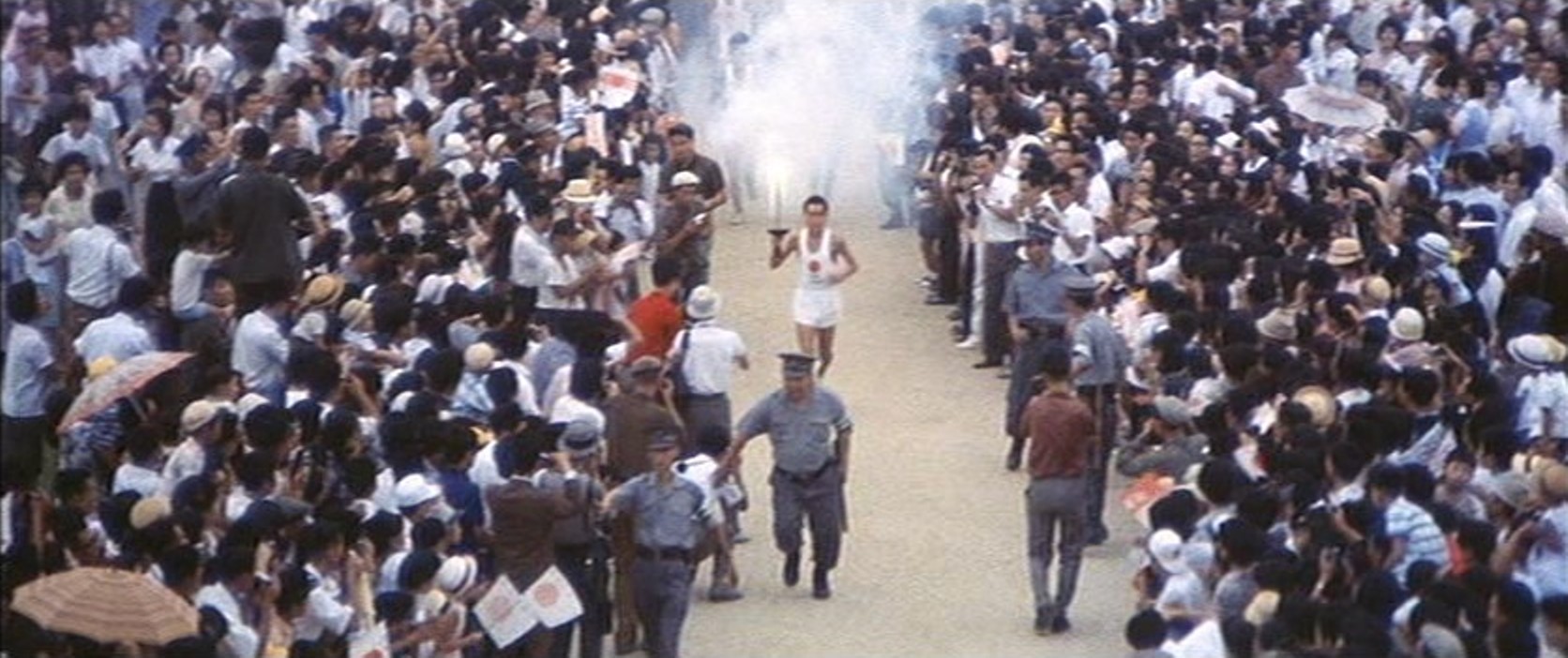“Let the arena of the stadium redden with the blood of the losers”. The mythical Alain Delon, ridiculous in the role of Brutus, opened one of the worst Olympic Games in the history of cinema, ‘Asterix at the Olympic Games’. This shame came to the coliseum in 2008, fortunately, by then some great and very great films had already been made about the biggest sports competition on the planet.
Many years earlier, in 1964, Kon Ichiwaka had made ‘Tokyo Olympiad’, wonderful celebration of the Olympic spirit. A corridor approaches in total darkness with the Olympic torch, which sets the screen on fire and transforms into the Japanese rising sun. One of the best films about the Olympic Games in history starts. The short shots of the children of Hiroshima, happily running behind the athlete, and the smiles and excitement of the athletes who are landing at Tokyo International Airport, marked the style of the film from the beginning, one of the few sports documentaries included in the film. book that Steven Jay Schneider edited with the list of the ‘101 movies you must see before you die’.
“The Olympic Games a symbol of human endeavor” was the motto of the film. “We know that the Olympics are a declaration of world peace backed by the belief that all human beings are equal, that is why we celebrate the Olympic symbol, the sacred flame. The sacred flame passed through Hiroshima on September 20. “And already in these first minutes of footage, Ichiwaka had pissed off the Japanese government.
The director, who had snatched the film from Akira Kurosawa himself -This imposed as a condition for directing it that they put him in charge of the opening and closing ceremonies of the Games, caused a heated controversy when he presented his work. That was not the epic image of the competition that his government expected, it was 165 minutes of authentic cinema, of genuine emotion, of faces shaken by effort, of surprised gestures, of tears, laughter … It was the epic of the human being and not the triumphant image of medals and flags that Japan wanted to offer to the world. It is the only official film of a game that has competed face to face with which Leni Riefenstahl did, an impressive job, of the 1936 championships in Berlin.
The greatness of ‘Tokyo Olympiad’ is, of course, in the gaze directed towards human effort and courage, disregarding the laurels and symbols. A point in common with what for many is still the best film in history about the Olympic Games, ‘Chariots of Fire’ (Hugh Hudson, 1981). “I have known the fear of losing, but now I am almost as afraid of winning.”
The concern, fear, sometimes anguish, with which two athletes faced the competition and all the circumstances that surrounded the characters turned the story into a human experience, emotionally powerful and surrounded by the romantic aura of cinema. True story of the famous rivalry of the extraordinary athletes Harold Abrahams and Eric Lidell, a Jew and a Christian, today the world remembers them much more for the music of Vangelis, the image of the athletes running barefoot along the shore of a beach , their huge smiles approaching the goal … for the cinema, more than for life.
And speaking of smiles, the man with one of the best, if not the best, movie smiles of all time, Burt Lancaster, gave life in the cinema to Jim Thorpe, an Indian from the Oklahoma reservation who won two ‘golds’ at the 1912 Games in Sweden. Michael Curtiz recounted his life in 1951 in ‘The Bronze Man’. It was the story of an athlete with a difficult childhood who touched the sky with his fingers, almost infallible elements in the cinema, which Rakesh Omprakash Mehra also took advantage of in 2013 in ‘Bhaag Milkha Bhaag’, biopic of the athlete Milkha Singh, the only Indian of the Sikh religion who has won a gold medal at the Games.
The other side of the competition was shown by Bennett Miller in ‘Foxcatcher’ (2014), also inspired by real events, but in this case singularly perverse and insane. The film recounted the relationship between John du Pont, one of the richest men in the world, and two Olympic wrestling medalists, the brothers Mark and Dave Schultz. A tale of deranged greed, madness, and narcissism that ended tragically.
That dark side of the history of the Games was also in the magnificent ‘Munich’ (2005), in which Spielberg focused on the murder of Israeli athletes by Black September in Munich 1972 and the mission to be carried out by a Mossad agent after the fact. Intelligent and very daring, the film was extremely uncomfortable and caused a bitter debate. Reaction contrary to that obtained by most titles dedicated to the glories of sport – there are films dedicated to Jesse Owens, Abebe Bikila and so many others – or to the true Olympic spirit. “Men share a dream every four years, is it enough that this peace is just a dream?”
– .


:quality(80)/cdn-kiosk-api.telegraaf.nl/730889ac-eb7a-11eb-b94f-02d2fb1aa1d7.jpg)